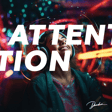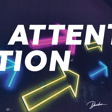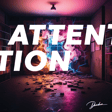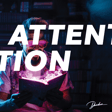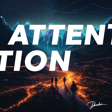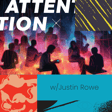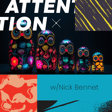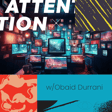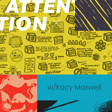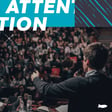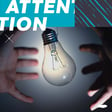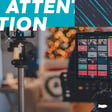Become a Creator today!Start creating today - Share your story with the world!
Start for free
00:00:00
00:00:01

How Taking Big Swings With Creative Content Pays Off w/Elena Hengel
In this episode, Dan Sanchez talks to Elena Hengel who is the Director of Marketing at Marketing Architects about the importance of taking big swings with your content marketing rather than making continuous safe bets.
In this episode you will learn:
- How they took a break from social and blogging to write a book.
- The impact that book had on their content marketing.
- What they are now looking to accomplish next in the future.
In this episode you will learn:
- How they took a break from social and blogging to write a book.
- The impact that book had on their content marketing.
- What they are now looking to accomplish next in the future.
Transcript
Quantity vs Quality Debate: Elena Hengel's Perspective
00:00:09
Speaker
Welcome back to the Attention Podcast. I'm Dan Sanchez with Sweetfish, and today I'm here with Elena Hengel, who is the Director of Marketing at Marketing Architects. Elena, welcome to the show. Hi, Dan. Thanks for having me. Absolutely. I was looking forward to this conversation because we're going to be talking about
00:00:25
Speaker
the quantity versus quality debate when it comes to content marketing. And it's something I've had frequent conversations with with other marketers on LinkedIn. And I think we've done some past episodes on the B2B growth show about this very topic. Though when I talked to Alaina about it, she had a unique take on how her companies approached this quantity and quality debate. So I wanted to cue it up to you, Alaina. What led you to the focus on quality? And then how did you approach it with marketing architects?
Creativity in Marketing: Disney's Big Bets
00:00:54
Speaker
Yeah, so this all started when my team found research from the B2B Institute, which is a think tank funded by LinkedIn. And they look into creativity and marketing specifically for B2B brands. And they had research called Blockbuster Marketing. And what the Institute did is they started with the principle that creativity is one of the most important pieces of marketing campaign success.
00:01:20
Speaker
And they've done a bunch of research into this. I think we can both agree that creativity is important. They even found that it can increase campaign results by up to 12x. So they started there. And they wanted to look at a company that was known for their creativity. So they started with Disney. And Disney does have a formula for their success and how they've produced creative and become the company they are today.
00:01:44
Speaker
But to understand how Disney got here today, we actually have to go back to Alan Horn and Warner Brothers. So Alan Horn, he used to run Warner Brothers. And when he was looking at the success of all their films, he found that their most successful films were ones where they spent the most money on big effects.
Success Stories: Salesforce and Duolingo's Big Bets
00:02:03
Speaker
big actors, big production budgets, and big promotions. So he put all of his money into movies like Harry Potter and The Dark Knight. He really just focused on a couple of films a year that he thought could break through. And Bob Iger, who was the CEO at Disney, noticed this and he hired Alan Horn to come and do the same thing for them.
00:02:23
Speaker
And that has led to Disney now being the most profitable movie studio in Hollywood. So what does this have to do with marketers? Well, the B2B Institute looked at this and they called it the principle of big bets. And they relate it to marketing because as we both know, marketers love small bets. We love testing and learning.
00:02:42
Speaker
We love to try a million different things, a million different channels, a million different creatives. I know I love to try as many things as I possibly can as a marketer. And the B2B Institute found that this actually is riskier to do a bunch of small bets than to place your money in big bets while we usually think the opposite. So they looked at Salesforce as an example. Salesforce has put millions of dollars into their state of sales reports.
00:03:08
Speaker
And while these reports, they cost a lot more to produce, they end up leading to bigger results and Salesforce can use them over time. And I think that this also doesn't just have to be something that costs a lot of money. I've noticed, for example, that Duolingo has been doing some really fun, crazy videos on TikTok that they've become well known for.
00:03:28
Speaker
These probably don't cost a ton of money to produce. However, deciding to do something like that with your brand and with a mascot, that's a big bet. So that's where this
From Blogging to Book Writing: A Big Bet Approach
00:03:37
Speaker
all started. It started from that report and we started to ask ourselves, are we taking enough big bets as a marketing team?
00:03:44
Speaker
Man, I really love the idea of taking big bets. And honestly, it's something that I was probably afraid of had it not been for James Carberry at Sweetfish, who's probably our big chief bet taker as the CEO. The most recent big bet we took in the process of taking is building a media studio and not like a normal media studio. He's putting a lazy river that runs through the foyer media studio just because it's different.
00:04:08
Speaker
And people are like, well, but the resale value of the building, he's like, I don't care about that. It's got to be different because if it's not different, no one's going to notice. So I really like this idea of big bets. And I know for you guys that led to writing a book. So how did it go from, did you just say like, Hey, well, we're writing all these blog posts. Let's compile them all and do a book instead. Like what was the thinking behind going into a book?
00:04:30
Speaker
Yeah, so we started by looking at our current marketing strategy. And we were doing what a lot of marketers do, what a lot of agencies do, is we were blogging once a week and posting on social media. And we started to look into, is this actually working? And it wasn't leading to a lot of incremental traffic. It wasn't driving business results. So we said, well, what if we stopped doing this and instead put all of our efforts into a big bet?
00:04:56
Speaker
We had talked about writing a book as an agency for a long time. It was one of those things that in random meetings, some would always throw out, well, why don't we just write the book on television advertising? So the reason we never did it is because it was going to take a lot of time, money, resources. And after we passed this report around, we just said,
00:05:16
Speaker
You know what? No one's really written the book on TV in a long time. There was no modern TV advertising book that we could find. And we felt that we were in a good place to really share our expertise here. So we just decided to go for it and write it. That's so true, man. The only TV advertising books I've read are at least 50 years old or more. It's like Rosser Reeves. It's like the classics.
00:05:38
Speaker
which is all still good stuff, but you're right, a lot has changed since then. And I haven't seen a modern TV advertising book. So how did you decide to go in that direction? Like, did you just decided to go all in on essentially your expertise? Is it like a thought leadership play at the end of the day? Yeah, we decided to go with TV advertising because
00:05:59
Speaker
No one in our competitive space had written about it. And TV is, especially traditional television, it's an interesting marketing channel because it's really run by huge media companies and big traditional agencies that don't really want to share their secret sauce. So it can kind of be a black box for marketers. And we do every element of TV. We create the ads, we measure them, we have conversion technology. So we felt like we really know the inside and outs of a television campaign.
00:06:28
Speaker
I also think that while not every marketer is going to be involved in TV, the principles that make a TV campaign and the brand strategy that goes behind it, how to create compelling video creative, how to measure a big channel like TV, those are all still important skills for marketers. So we felt like TV was something that was uniquely ours, but it could also be broad enough to appeal to any any marketer.
00:06:53
Speaker
So writing a book is a monumental task. It's a lot of content. You're talking 50, 60,000 plus words. And in blog posts, if you're writing 2,000 word articles, it's like 40 to 50 blog articles. It's a lot. And a lot harder than 50 blog articles, because it's got to be unique. Once you went through that and published this thing, what did you then do to grow your audience with this now huge asset that you have?
Book's Impact: Confidence, Clients, and Content
00:07:21
Speaker
Yeah, so we looked at that in two ways, sort of internal and external. So the book was actually very impactful for current clients and employees. It felt like a piece everyone could really rally around. We also used it for some prospecting, so it helped us win a new account for the agency.
00:07:38
Speaker
So there was that internal piece where I think it just added confidence and authority to the team and helped almost build an audience within your company that is following what marketing is doing and is engaged. Then externally, we broke it up into a lot of different pieces of content. So we broke it into blogs. We posted pieces of it on social media.
00:07:59
Speaker
We did some PR with the book. Our CEO was able to be interviewed on a couple of different podcasts. And we even recently ended up breaking down the book into its own limited series podcast with Sweetfish. And we based the episodes on chapters of the book. And the episodes were brand new. We brought in people to interview, but the book provided a template for us then that we took and made into a podcast. Before we published the book,
00:08:25
Speaker
Our LinkedIn followers, they were growing, but it was slow growth for our company page. And now that we've published the book in the months that have followed, we're seeing exponential growth to our followers. We're now the second fastest growing company page in our competitive set. And I really don't think that ever would have happened without making a big move, like writing a book and just the impact that has had. It feels like it brought us an audience for the first time ever as an agency.
00:08:54
Speaker
It makes a lot of sense because with a book, you're really like putting a stake in the sand. You're like, no, this is what we believe. It rallies the whole team around the ethos, the methodology, or the thinking behind the company, and really gives you a bunch of ways you can then create all the short form channel. And then you go from this one big quality piece that
00:09:12
Speaker
makes it consistent to get out the quantity pieces, right? Because you could break that into so many blog posts, those blog posts turn into so many social
Quality Content Boosts Quantity and Growth
00:09:19
Speaker
posts and so on and so forth, right? Like how many pieces of content do you think you've produced since the book that are probably related to the book?
00:09:27
Speaker
It had to be over 100. And I agree with you. I can see where this, you know, we frame this as a quantity versus quality debate, but creating something really high quality, it leads to more quantity because it's just easier to take a piece of content like that and explode it into a million different things because you have so much more to share when you really put time into something like this.
00:09:52
Speaker
See, I love the nuance of the conversation because it's always like a both and, right? You had to really, to do a book, it has to be a certain level of quality because to publish something on paper is like, it just goes through more scrutiny, more editing, more fact checking than a normal blog post does. It really forces you to sit down and think about what you actually believe, to put something in print. But then sitting down long enough to force the content leads you to doing quantity faster and more efficiently because you're all on the same page with it.
00:10:20
Speaker
And sometimes almost feel like quantity or like you can achieve that big result that you were talking about in the beginning through a volume of content, provided that volume's actually good. Like the effect of 200 blog posts can have an effect on its own, right? Just in volume, like Google will see that differently. Even if it's a blank new website, 200 blog posts can do something. If you can publish that in about 60 to 90 days.
00:10:45
Speaker
But essentially what I'm hearing you say in the lesson that I'm taking is like taking a season to hold back, to consolidate your thinking really can launch you forward so much faster. Would you say that's like a primary lesson you've learned?
00:10:59
Speaker
Yeah, and I think that as a marketer, I get so scared if I feel like we're not doing enough. You feel like you always have to be posting and what's the next piece of content? And when we stopped, we just stopped posting things and we focused on this and the world didn't explode and it allowed us to see that our content, I don't think our content was bad, but it wasn't having the type of impact that we wanted it to. So I think that
00:11:24
Speaker
If marketers can slow down a little bit and put time into something like this, it's going to help them align on their strategy and allow them to see what's working. I also think that I like this principle because being a marketer, it does feel like the stakes are just as high as producing these movies, and it's just as competitive out there to try to get people's attention.
00:11:47
Speaker
And for us posting blogs every week, it was just going to take so long for us to break through in our category. We needed things to happen faster. And sometimes
Quality Focus: Better Alignment and Faster Results
00:11:58
Speaker
I think, I know I wish there were a cheaper or faster way to get there, but it feels like it's worth it to slow down, to invest more time, money and resources and just trust. This is scary because I'm risking more, but it's going to pay off in the end.
00:12:13
Speaker
When I started as a marketer, there was a book that I read that was influential on me and I always remember the metaphor. I can't remember the name. I think it was called like launch and it had like this rocket word on it. I don't know. It was a social media book and he talked about, I think it was Michael Steltzer. I don't know. Might've been the same guy who does like the social media examiner. It's my guess.
00:12:33
Speaker
But he talked about social media marketing being like building a fire. You can't just throw a log and blight a match to it and expect it to catch, right? You have to build your small pieces, your kindling, and then throw the smaller sticks on it, the tinder, and then throw the big logs on it, which he called the rocket fuel.
00:12:50
Speaker
with your social media being the kindling, your blog post being the Tinder, and then the rocket fuel being things like a book, a lengthy research report. Now, would you say, if you could go back, would you have wanted to start with the rocket fuel and then go into the smaller pieces? Or do you think it's smarter to actually start with the small stuff and then throw the log on it, like that author that I'm thinking of recommended?
00:13:13
Speaker
I do think that there needs to be something there. So if we just published a book as an agency and someone went to our website and we didn't have any content for them to consume or solid positioning or some blogs or some exploration, then it wouldn't be as effective. So I would agree with that, that you need to have some kind of base.
00:13:32
Speaker
to build upon. It also helps to have some history of testing messages and knowing what works. Since we've been around for so long posting content, we had a pretty good idea of what we could put into the book that would resonate with people. So yes, I would definitely agree with that. I think that the problem marketers face is, at least the problem I faced was I just kept putting on more kindling because it felt safe.
00:13:57
Speaker
And when is it time to make a bolder move and to do something to stand out? And I think things are only getting more competitive. So there is going to be more pressure to make these moves earlier. I know I heard someone on the Sweetfish podcast, I can't remember what company it was, but
00:14:13
Speaker
this marketer, she was talking about how they skipped right to paid media. They didn't spend that much time building up their organic content because it's so competitive in their space. They just said, what if we flip this? And we started off with paid media and it seems to be paying off for them. So I do think you need the kindling, but it also helps to be thinking earlier about these bigger moves. I think marketers could make them sooner than they think.
00:14:36
Speaker
Absolutely. I mean, you got to have some assurance that you know what you're talking about by getting out there into the market and testing some things, shooting little bullets before you shoot the cannon, as Jim Collins would say.
Future Plans: Brand-Building TV Campaign
00:14:46
Speaker
Sounds like a smart move. So now that you've published the book, you've gotten 100 pieces plus out of this. Where are you going in the future? Are you guys planning your next like cannon that you're going to fire? Do you have, what's your future plans?
00:15:01
Speaker
Yes, so now we're in the middle of brainstorming. What is that next idea going to be? And we don't know exactly what it is yet. We have a few different ideas. And now we feel like we have a formula that we can go off from. We have some more support from the finance team after doing this for the first time. And I feel even more confident making another
00:15:23
Speaker
big move. So yes, our next task as a team is what is that next big thing we're going to do? And while I do feel more confident, it's definitely still scary. So I'm not sure if that ever that ever goes away. But yes, we're looking for that next big thing now. Yeah. What are some of the ideas on the table if you're allowed to share?
00:15:39
Speaker
Well, one of them involves creating a brand building campaign for the agency. So creating basically a TV commercial for a TV agency and then promoting that. But not being so focused on bottom of the funnel when it comes to marketing. And I think especially B2B marketers, it's easy for us to get very focused on product marketing. But what if we took a really big swing and we made something very creative just for the purpose of building our brand?
00:16:08
Speaker
And that's a big move for a lot of reasons, particularly because we're a performance TV agency. So our whole agency is very focused on direct response. But if we can create something that really stands out and has a big impact, I think that the long-term results from that could be even more impactful than more of a direct response creative. So that's one idea we have that we're exploring. It's interesting.
00:16:32
Speaker
You could think about going more of a Harmon Brothers approach, where it's direct response, yet highly entertaining. Or you could go purely on the creative and try to hit a certain message and tone that resonates with the audience.
00:16:46
Speaker
We're leaning towards more purely creative for this one. But we'll see. We definitely have those direct response routes, so sometimes it's pulling ourselves back from being so performance-driven. Absolutely. I feel like there's always a place for direct response. And then actually, in the beginning, it probably always pays to use direct response. But I feel like all marketers, after they get their routes and direct response, grow some wings and start testing out creative, finding out that broader positioning can make such a massive difference.
00:17:16
Speaker
and messaging plays that end up affecting how people think about the whole industry overall. So I'm excited to see where you guys go with that. And thank you so much for joining me on the Attention podcast today. Where can people go to learn more about you and marketing architects? Yeah, to learn more about marketing architects, go to marketingarchitects.com. And if you want to find me on LinkedIn, my name is Alayna Hangle, and I would love to connect. And if anyone ever wants to talk TV advertising, I could talk about it all day.
00:17:46
Speaker
Fantastic. Again, thank you so much for joining me on the show today. Thank you for having me.

